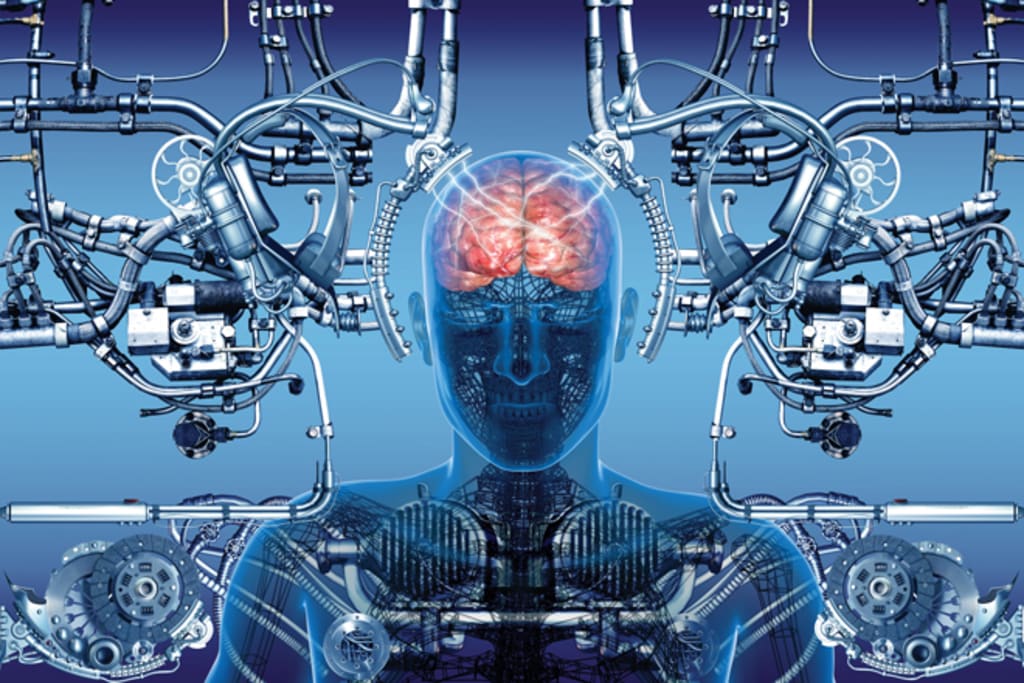Pioneering the Integration of Minds and Machines for Medical Marvels and Human-Computer Interaction
Brain-Computer Interfaces

The quest to understand and interact with the human brain has been a fascinating journey for scientists and technologists. Brain-Computer Interfaces (BCIs) represent a groundbreaking advancement in this endeavor, enabling direct communication between the human brain and external devices. BCIs have opened up a realm of possibilities, from medical applications that offer hope to individuals with disabilities to novel human-computer interaction paradigms that push the boundaries of human capabilities.
A Brain-Computer Interface is a communication pathway that connects the human brain to external devices or computer systems. BCIs decode and interpret brain signals, allowing users to interact with computers or control external devices using their thoughts. BCIs can be non-invasive, using electroencephalography (EEG) to detect electrical brain activity from the scalp, or invasive, directly interfacing with neurons using implanted electrodes.
Brain-Computer Interfaces have shown remarkable potential in the field of medicine, particularly in restoring lost sensory and motor functions. Some of the key medical applications include:
Assistive Technology: BCIs offer hope to individuals with paralysis or severe motor disabilities, enabling them to control robotic limbs, prosthetics, or assistive devices through their thoughts.
Neurorehabilitation: BCIs are being used in neurorehabilitation to help stroke and spinal cord injury patients regain motor functions through targeted brain training and stimulation.
Brain-Controlled Exoskeletons: BCIs paired with exoskeletons have the potential to restore mobility to those with mobility impairments.
Communication for Locked-In Syndrome: BCIs allow communication for individuals suffering from locked-in syndrome, a condition where they are fully conscious but unable to move or speak.
Brain-Computer Music Interfaces: BCIs are also being explored as a means for individuals with motor disabilities to create and interact with music using their thoughts.
Brain-Computer Interfaces are revolutionizing the way we interact with technology and computers, ushering in a new era of human-computer interaction:
Controlling Computers with Thoughts: BCIs enable users to navigate computer interfaces, type texts, and issue commands using their thoughts, making hands-free computer interaction a reality.
Brain-Driven Gaming: In gaming applications, BCIs create immersive experiences by allowing players to control elements of the game using their minds.
Enhanced Learning and Training: BCIs have the potential to accelerate learning and skill acquisition by providing direct brain feedback during training and learning sessions.
Emotion and Mood Detection: BCIs can decode brain signals related to emotions, enabling computers to adapt responses based on the user's emotional state.
Augmented Cognition: BCIs may enhance human cognitive abilities, such as memory and attention, by providing real-time cognitive support.
The future of Brain-Computer Interfaces holds immense promise:
Brain-to-Brain Communication: Research into brain-to-brain communication is ongoing, with the potential to allow direct communication between individuals using BCIs.
Neural Implants for Medical Treatment: BCIs could be used to treat neurological conditions like epilepsy, depression, and Parkinson's disease through targeted neural stimulation.
Mind-Controlled Internet of Things (IoT): BCIs integrated with IoT devices may allow seamless control of smart homes and technologies with thoughts alone.
Brain-Computer Interfaces represent a groundbreaking leap in the integration of human minds and machines, propelling us into a new era of medical miracles and human-computer interaction. From assisting individuals with disabilities to enhancing human capabilities, BCIs hold the potential to transform lives and empower humanity like never before.
As we explore the boundless possibilities of Brain-Computer Interfaces, we must navigate the ethical considerations, address challenges, and ensure that this technology benefits all of humanity. With responsible development and thoughtful implementation, BCIs can pave the way to a future where minds and machines seamlessly collaborate, offering a glimpse into a world once relegated to the realm of science fiction.
About the Creator
Reynol Brennan
A small blogger who shares emotions, life, life insights, and short stories, and provides everyone with happiness, growth, and common sense of life.
Enjoyed the story? Support the Creator.
Subscribe for free to receive all their stories in your feed. You could also pledge your support or give them a one-off tip, letting them know you appreciate their work.






Comments
There are no comments for this story
Be the first to respond and start the conversation.